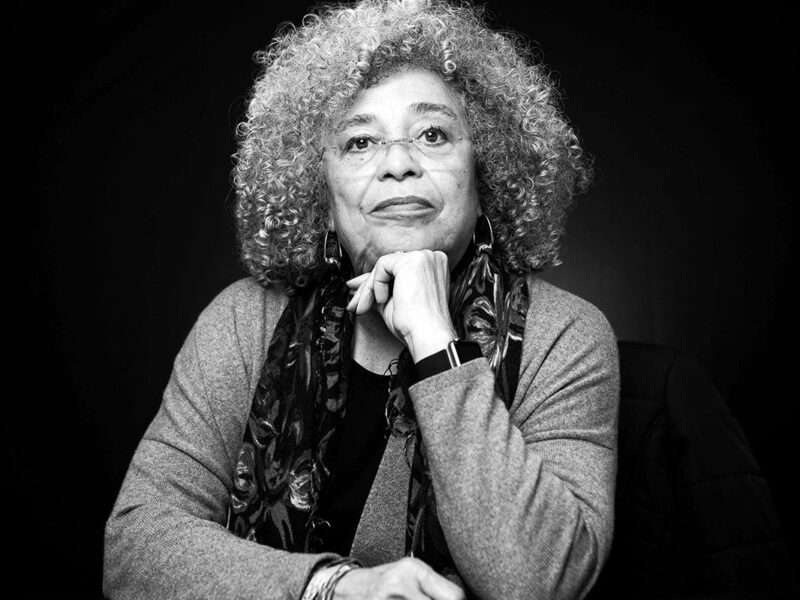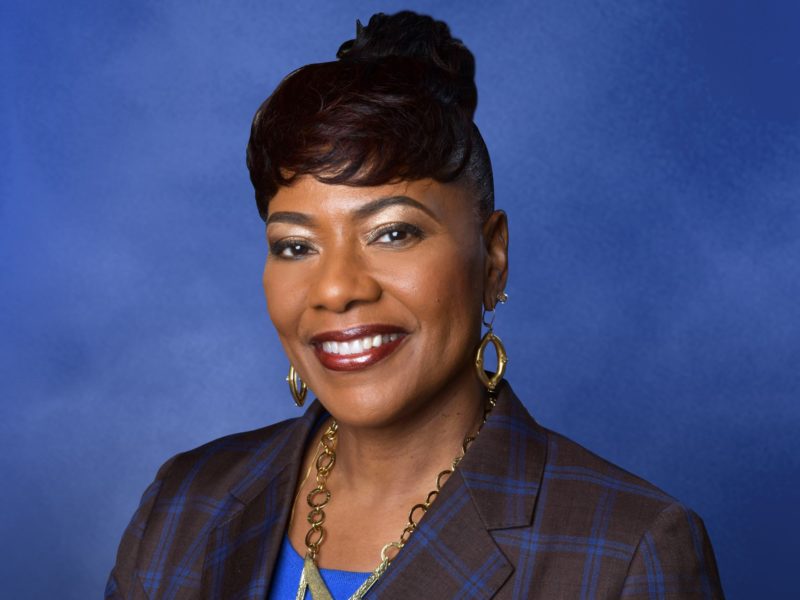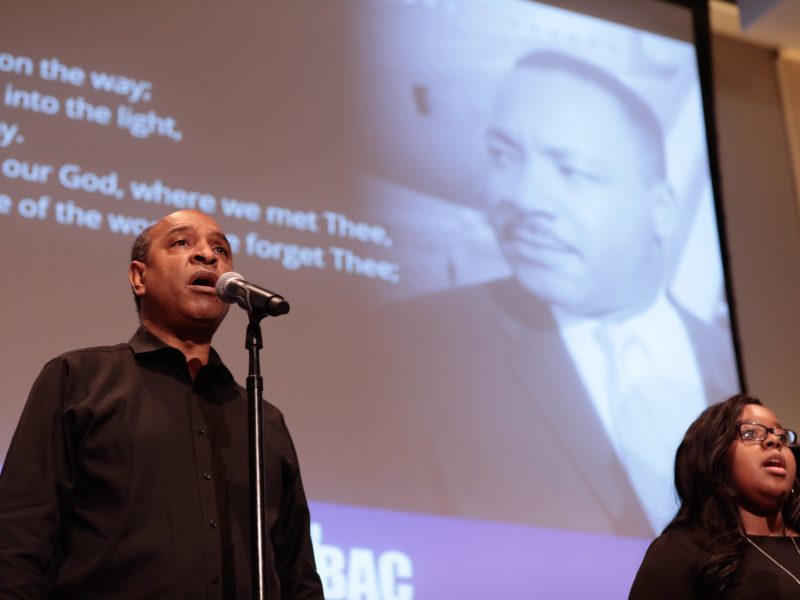‘The March Toward Liberation’: Reflections On A Lifetime Of Activism At Annual MLK Breakfast
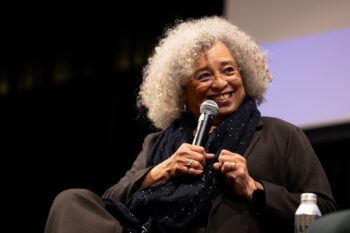
Activist and academic Dr. Angela Y. Davis recently visited Texas A&M University, sharing insights from her lifetime of advocacy for racial justice, women’s liberation and related causes during a wide-ranging discussion hosted by the MSC Carter G. Woodson Black Awareness Committee.
Texas A&M students welcomed the philosopher back to campus as part of the annual Rev. Dr. Martin Luther King Jr. Breakfast, an annual event celebrating King’s life and placing his work in a modern context.
“Our hope is not only to honor Dr. King, but to also make his legacy relevant for the university and its students, faculty, administration and staff,” said WBAC special projects director JJ Torres ’24. “We hope to utilize the passion and spirit associated with Dr. King, the Civil Rights Movement, and other leaders of the past to inspire and foster a spirit of action in the leaders of today and tomorrow.”
Davis first spoke at the breakfast in 2011, and the event has since included appearances from figures such as Ruby Bridges, Harry Belafonte and Dr. Bernice A. King.
“We appreciate [Davis’] commitment to honor Dr. King’s legacy by speaking with us and sharing her approach to social change,” said WBAC Chair Madison Webb ’25.
Davis, who turns 80 this month, was treated to a spontaneous rendition of “Happy Birthday” sung by audience members as she took the stage at the Memorial Student Center Thursday morning. An icon of liberationist movements from the late 1960s onward, Davis said she feels privileged to have lived through so much and to stand “as a witness for all of those who are not here.”
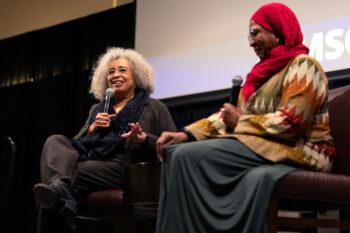
Over the course an hour-long discussion moderated by Wendler Endowed Professor Rebecca Hankins, Davis stressed the need for persistent action by everyday people to keep pushing society in a positive direction.
“The reason we are here today is largely because Black women in Montgomery, Alabama — who were poor women, who were domestic workers — refused to ride the bus,” Davis said, invoking the 1955-56 boycott that helped kick off the broader American Civil Rights Movement. “It was their collective vision, their collective imagination that led to earth-shaking changes.”
While King’s words and actions made him a lasting symbol of this fight for equality, Davis said it’s important to remember the millions who fought alongside him and those who still fight for liberation around the world today — from those continuing to advocate against white supremacy and economic inequality, to more recent movements like the campaign for transgender rights.
“Every step forward allows us to see aspects of the struggle that we were not aware of before,” Davis said, noting that the Civil Rights Movement largely focused on the status of Black men before Black feminist scholars and activists began to shine a light on the unique oppression faced by Black women.
Similarly, she said, “it could not have been predicted that the trans movement would teach us lessons about the nature of struggle that we were unaware of before.”
Drawing on her decades of experience as a university educator — she is currently a distinguished professor emerita at the University of California, Santa Cruz — Davis also offered an assessment of the challenges and opportunities facing the American education system today, calling it “a pivotal moment in our history.”
“Education should, in my opinion, consist of teaching students not so much what to think … but how to think,” she said. “Education really is about the march toward liberation.”
As that march continues, Davis said, it’s important to recognize that every victory — including the formal adoption of Martin Luther King Jr. Day as a federal holiday in 1983 — was achieved not by government officials but by mass movements of ordinary people.
“We are here today because masses of people fought for years to celebrate the birthday of Dr. Martin Luther King,” she said. “If it had been up to the official leaders, we would not be here today. … Change always comes from people who decide to stand together and embrace the collective imagination of what the future might be.”
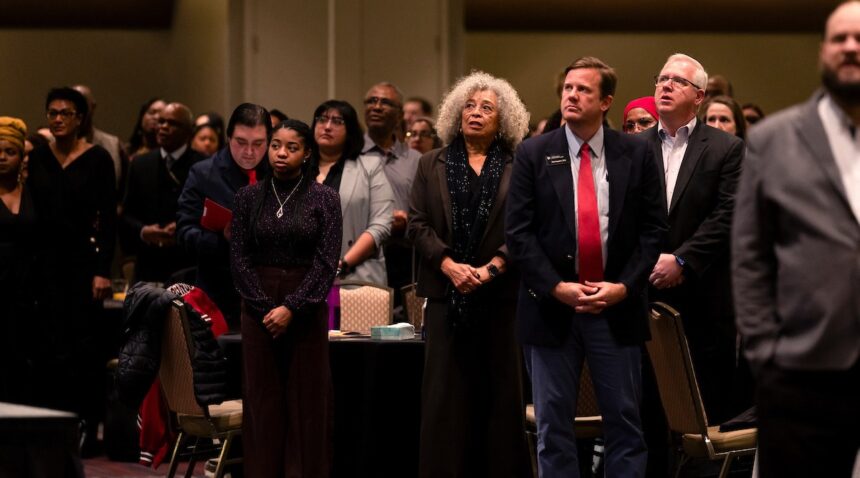
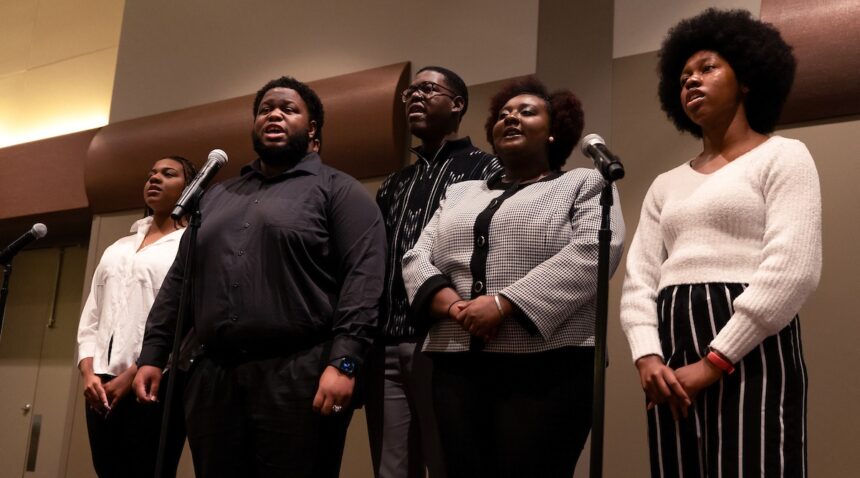
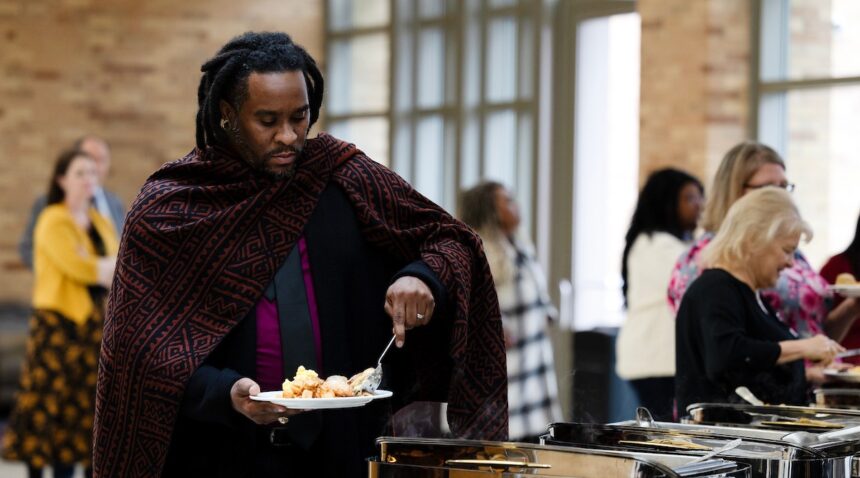
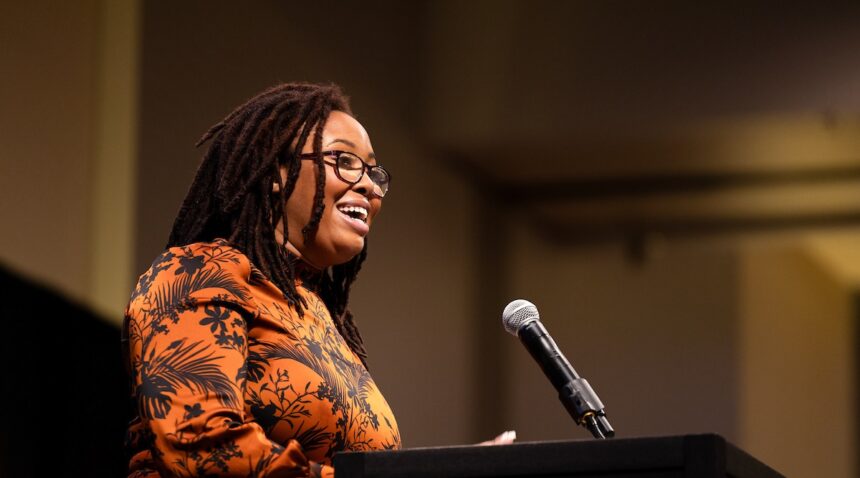
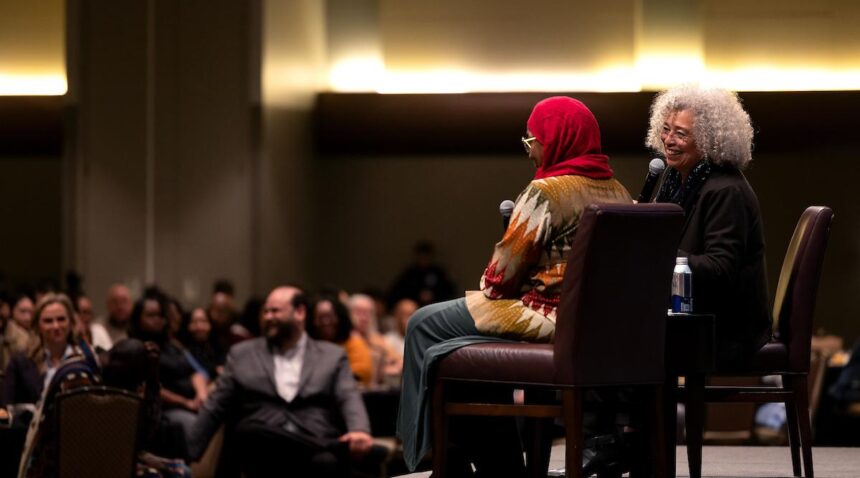
Media contact: tamunews@tamu.edu
